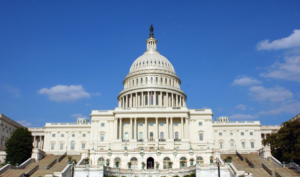Medicaid expansion is a leaky boat

Imagine you own a modest boat that you like to take out on the lake when you go fishing. Your boat serves its purpose – it has space for a case of cold ones and enough room for you and your fishing buddies. It takes some work, but you’re able to maintain her and make repairs pretty much on your own.
Now imagine you’re going by a marina, and you see a small yacht for sale. In a strange fit of daring, you buy it! The owner is offering special financing for the first few years, and it seems like this new boat fits within your budget. What happens?
At first, it’s exciting but we all know the saying: The two best days in a boat owner’s life are the day they buy the boat and the day they sell it.
After a few trips on the water, reality sinks in. The engine fails in the middle of the lake, and you need a tow back to shore. Your friends ask you to take the boat out, encroaching on your fishing time. An issue arises with the electrical system resulting in a costly repair. The upkeep costs are more than you bargained for, it’s manageable for now because of the sale, but that special financing is going to expire.
It might seem hard to believe, but today, North Carolina finds itself in much the same position in relation to the federal government and Washington is trying to lure them into a trap.
Specifically, the Biden administration is offering states a five-percentage point increase in the federal government’s Medicaid contribution in exchange for expanding the program to nearly 900,000 able-bodied adults.
Branded as an “incentive,” a more apt word would be “bait.” For one thing, the increased match for traditional populations only lasts two years. More importantly, it doesn’t come close to covering the cost of the additional population, which have consistently shattered initial estimates in expansion states: On average, twice as many people have enrolled at a cost 157% greater than projected.
Even with the federal carrot, North Carolina would be facing a net state-level cost of expansion of roughly $6 billion over 10 years. A term-limited governor like Roy Cooper who doesn’t have to deal with the long-term budgetary consequences may enjoy the plaudits that follow an infusion of federal cash – but his constituents will be left holding the bag.
At this point, you may object: maybe expansion is expensive, but isn’t it worth shelling out money to help people get coverage? Life is more than dollars and cents.
But the truth is Medicaid expansion often does more harm than good. Because Medicaid only pays providers a measly 60% of private insurance rates, only 71% of providers nationwide currently accept it. This frequently makes it difficult for enrollees to access care. Adding yet more people to the program promises to make this bad problem worse.
In any case, as of 2019, no fewer than 63% of North Carolina residents that would qualify for Medicaid under an expansion already have private insurance, whether through an employer or on the individual market. What’s more, nearly 320,000 are either enrolled in, or qualify for, individual coverage free of charge – while thousands more can receive premium assistance that substantially reduces their costs.
Let that sink in: A sizable majority of expansion-eligible North Carolinians are already served by superior private insurance with vastly wider provider networks – and a significant portion of those are receiving it for free.
North Carolina’s leaders should not commit its taxpayers to untold future expense for such dubious benefits.
No amount of federal largesse can change the fundamental problem of the Medicaid program: It barely has the money to meet the needs of those it was originally created to serve. It’s the first or second largest budget item for states, and North Carolina is no exception. Nationwide, Medicaid is already the nation’s largest payer of long-term care, and thanks to an aging population, those costs alone are expected to balloon 500 percent by 2050.
In other words, the program’s long-term viability to meet the needs of its traditional populations – some of the most vulnerable in America – is far from guaranteed. Piling yet more weight atop a program already groaning under its own weight is – to put it charitably – short sighted. We whistle past the graveyard at our own peril.
The Biden administration’s bait clothes itself in the language of federal generosity and reasonableness. Like the new boat purchase, adopting Medicaid expansion is satisfying at first. Unlike the boat, however, North Carolina will be stuck with Medicaid expansion.
This article was originally posted on Medicaid expansion is a leaky boat





